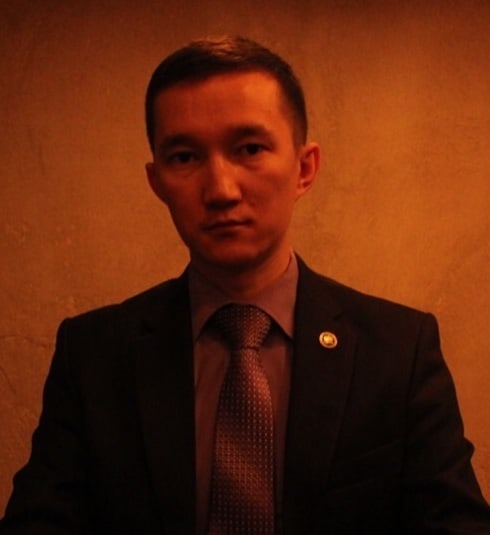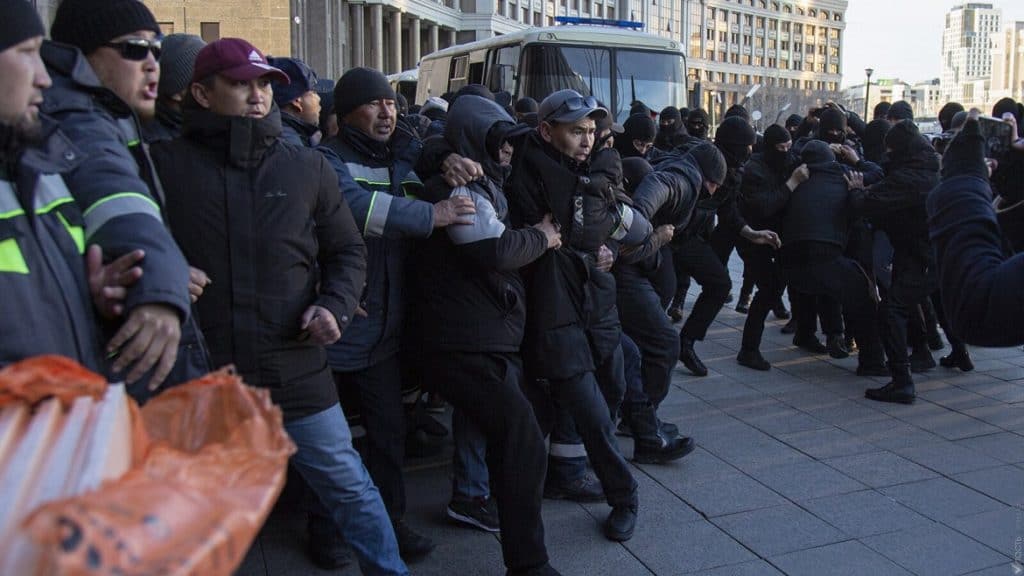By Marat Yessimseitov
The beginning of April was really hot for Kazakhstan. More than two hundred oil workers arrived in Astana from Zhanaozen, a city in the Mangistau region, in Western Kazakhstan, asking for a job with the JSC oil company “Ozenmunaigas.” The LLP BerAli Mangistau Oil Company, where they were previously employed, had lost the tender and its workers were left jobless.

Now that the situation has calmed down and almost a month has passed, we can reflect on what really happened and how geopolitical issues trump domestic political processes.
As we know, oil sector workers staged an unlawful protest in front of the Ministry of Energy of the Republic of Kazakhstan and the building of the national company KazMunayGas JSC, not even allowing employees of these companies to enter the buildings, categorically refusing repeated requests from police officers and representatives of authorized entities to disperse and settle matters in court.
The oil workers were exclusively asking to work in the JSC “Ozenmunaigas” under the same conditions as their last jobs and with long-term employment contracts. Stressing that life is getting more and more expensive and they have no money to feed their families.
However, if the situation is indeed as the protesters say, some questions arise.
First, where did the unemployed oil workers get the money to come to the capital to live, eat, communicate and set up a tent city?
Second, the oil workers began protesting late in the evening, but some journalists, almost simultaneously with their arrival, published analytical materials in several languages about the protest, although there had been no prior information about the strike. Might it be possible that the materials had been prepared in advance by journalists in different cities?
Third, it seems that members of the government offered them a job, with a significantly higher salary than the average in the country, and a long-term contract, in another oil company, since there were no jobs available in JSC “Ozenmunaigas” at the time, but the oil workers categorically refused. One may wonder why they were so eager to get a job only in JSC “Ozenmunaigas.”
So why did a private dispute between employer and employees in the Mangistau region suddenly migrate to Astana and take on a political coloring? And why did the citizens of West Kazakhstan quickly organize public actions in support of the arrested oil workers?
It is true that the Zhanaozen problem has been acute for a long time. For example, the well-known events of December 2011, in which a terrible tragedy occurred. However, oil workers in other regions of the country, who receive much lower wages than those in Zhanaozen, generally do not protest or engage in labor sabotage actions. Perhaps, the mood of the oil workers in the Mangistau region is related to the fact that most of them are immigrants from neighboring poor countries, where such methods of achieving goals are justified by an underdeveloped market economy.
In light of this, it may be possible that some people who do not want economic benefits, but rather political benefits, are behind the protests of Zhanaozen oil workers.
The main beneficiaries of the popular unrest and mass protests of oil workers may be the representatives of so-called “Old Kazakhstan,” eager to return to power. For this very purpose, they may have organized or otherwise encouraged the mass protest of oil workers in the capital and protests of residents of the Mangistau region, accompanying them with a powerful information campaign involving bloggers and journalists. Their main goal could be a repeat of the events of January last year, their return to power, and then the establishment of closer political integration with Russia through the creation of a single parliament and a supranational currency within the framework of the State of the Union. Today, only Moscow can guarantee them long years of rule. However, such a union would automatically force Kazakhstan to participate in the war against Ukraine alongside Russia. After all, it was Kazakhstan’s previous leadership that formed customs, economic and other alliances with its northern neighbor, which have now turned into major problems for Kazakhstan.
Of course, the oil workers who took part in the protest do not even realize that they may have just been a tool of a larger policy, which could involve Kazakhstan in a major geopolitical war, where Kazakhstan has no interest to participate, and no chance.
Author: Marat Yessimseitov – Independent political consultant
(The opinions expressed in this article are solely those of the author and do not necessarily reflect the views of World Geostrategic Insights).
Image Credit: Zhanara Karimova







